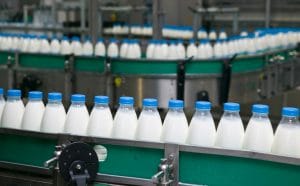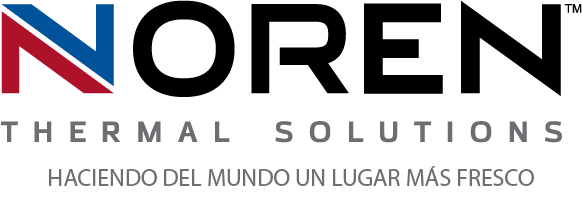 Like most industries, food and beverage production involve several unique processes that require the use of reliable thermal management systems. Many of the processes are now controlled or assisted by various forms of technology, each with its own electrical cooling needs. In many cases, those needs are most efficiently met with the help of modern heat exchangers. However, some of the pivotal processes involved with producing and packaging food & beverage products also rely on highly effective and reliable thermal management solutions. Depending on the specific applications, heat exchangers are also often used to supplement heat or remove it to keep temperatures low, all while helping companies optimize safety and minimize their overall operating costs.
Like most industries, food and beverage production involve several unique processes that require the use of reliable thermal management systems. Many of the processes are now controlled or assisted by various forms of technology, each with its own electrical cooling needs. In many cases, those needs are most efficiently met with the help of modern heat exchangers. However, some of the pivotal processes involved with producing and packaging food & beverage products also rely on highly effective and reliable thermal management solutions. Depending on the specific applications, heat exchangers are also often used to supplement heat or remove it to keep temperatures low, all while helping companies optimize safety and minimize their overall operating costs.
Heat exchangers in the food & beverage process
For many food & beverage companies, heat exchangers take on the same common roles they do in other industries. That mostly includes the rapid and efficient cooling of electrical enclosures, such as control panels, to eliminate the need for air conditioners and air compressors to stop electrical equipment from overheating. On one hand, this helps food & beverage companies reduce the costs of electrical cooling by reducing the need for energy for it. However, it also creates a safer and more eco-friendly way to cool equipment that’s used in close proximity to consumable food & beverage products.
Other important thermal management processes
In addition to cooling electrical enclosures, however, food & beverage production also rely on the precise control of temperatures for several other vital processes. For example, pasteurization and other safety processes often rely on chilling or heating products, as well as safe, temperature controlled packaging, storing, and shipping methods. Today’s companies often rely on advanced heat exchanger technologies, which can often be customized to meet the company’s specific needs. Heat exchangers allow food & beverage companies to facilitate several different types of thermal management processes with enhanced safety and efficiency.
What benefits do companies experience?
Even after heat exchangers first became popular, they weren’t always used for processes outside of electrical thermal management. Now, however, they’ve become increasingly more common throughout the food & beverage industry for uses beyond electrical cooling, including processes that are designed to help lower a company’s environmental footprints. For instance, wastewater treatment processes that require the sustained application of heat can be made more cost and energy efficient with the help of custom-designed heat exchangers.
For more information about handling waste heat better in the food & beverage industry, call Noren Thermal Solutions in Taylor, TX, at 866-936-6736.







